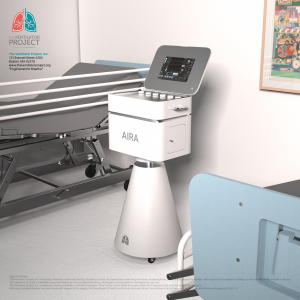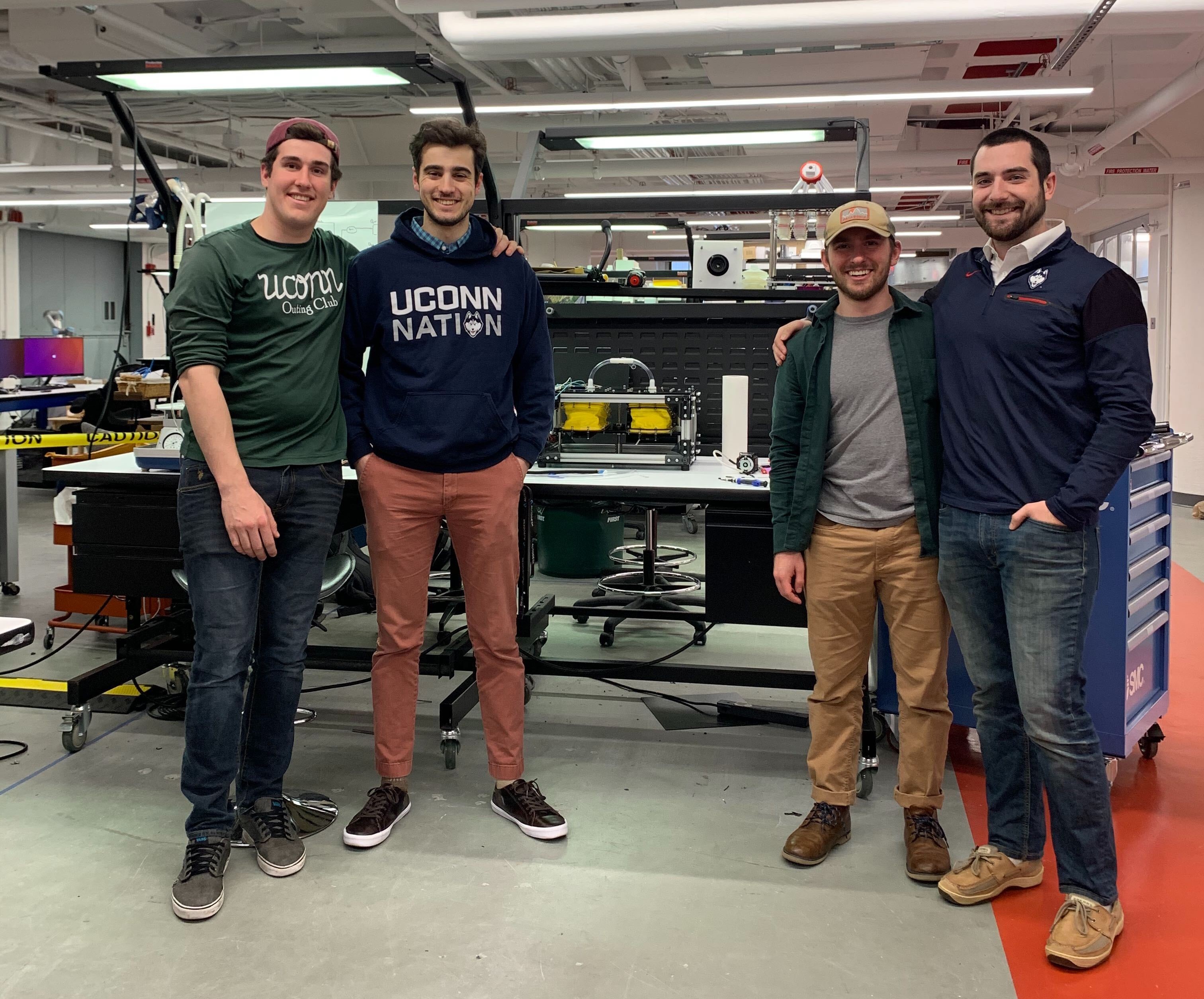A pair of UConn students and a recent graduate are part of a Boston-based effort that is trying to bring an emergency ventilator to market as quickly as possible during the COVID-19 pandemic.
Noah Pacik-Nelson ’20 (ENG) now serves as the lead engineer for The Ventilator Project, an all-volunteer organization.
He did an internship last summer for founder Tyler Mantel at a robotic start-up company. Pacik-Nelson was driving back from a spring break rock-climbing trip in Kentucky when he received a call from Mantel to ask him to be one of the first engineers on the team. Pacik-Nelson, a native of Mansfield, was in Boston less than 48 hours later.
The Ventilator Project is designing an emergency ventilator that can support a COVID-19 patient for as long as they need to be ventilated, usually a span of 11 to 21 days.
“Our ventilator is able to provide the three main modes of ventilation, which accounts for 80 to 90 percent of requirements for most patients – that is, pressure control, volume control, and pressure support,” says Pacik-Nelson.
In his role, Pacik-Nelson is directing the technical trajectory of the project, and makes sure all the engineering teams are working together to reduce redundancy.
“The pace at which the project has been moving is amazing,” says Pacik-Nelson. “In my first week here, I was doing a lot of prototyping, and now they have moved me to this role.”

The ventilator they are producing employs a motor that compresses a bellow system in a controlled fashion.
“We are designing it to stay completely off the medical supply line from the ground up,” says Pacik-Nelson. “A lot of the components we are using are food-grade and already authorized for biocompatibility with humans. Our ventilator measures for specific amounts of pressures and volumes so that what is prescribed by a doctor is reaching the patient.”
“Noah’s leadership effort shines as much in The Ventilator Project as it does in my class with his invention and development of an automated emergency response product,” says UConn engineering professor Hadi Bozorgmanesh.
Justin Schroder ’20 (ENG) is doing hands-on work in the prototyping and development of the ventilator. The Fairfield native brings a wide variety of knowledge to the process, which is on its sixth iteration of a prototype.
“We are working directly with computer modeling as we compare ours to ventilators on the market. We want to improve on those, but also decide what those have that we don’t need,” says Schroder.
Mark Waldner ’19 (CLAS) is currently in law school at the University of New Hampshire and is part of the effort to get the ventilator approved for manufacturing.
“My job is to be the liaison between the lawyerly talk and engineering talk and bridge the gap the best I can,” says the Portland native.
Waldner said The Ventilator Project is currently looking to secure emergency-use authorization through the Food and Drug Administration.
“We are trying to get our product authorized to be used during this pandemic and move on from there,” says Waldner. “Hopefully, we will continue to grow and branch out to help out with other medical devices.”
Once the COVID-19 pandemic is over, Pacik-Nelson believes their efforts and philosophies can be used to provide much-needed medical equipment around the world.
“The people who have come together as a result of this project would have never have done so without a time of COVID-19,” says Pacik-Nelson. “I hope that it will make people more cognizant of all the shortcomings the world is currently facing. We have realized that $60,000 ventilators are the only things on the market and that’s not affordable for much of the world. These types of issues affect people around the world on a much more regular basis than we realize.”
Pacik-Nelson believes his experience at UConn has prepared him greatly for his work on the The Ventilator Project.
“I have developed a diverse skill set that allowed me to be involved in this project in the first place,” says Pacik-Nelson. “I handled a lot of things at once because I was one of the first engineers here. UConn prepared me to balance a lot of different projects under a lot of different umbrellas that are going on at the same time. That skill set prepares someone well for a project like this, or at another start-up.”
For more information, visit The Ventilator Project online, which includes an opportunity to donate to the non-profit organization.



